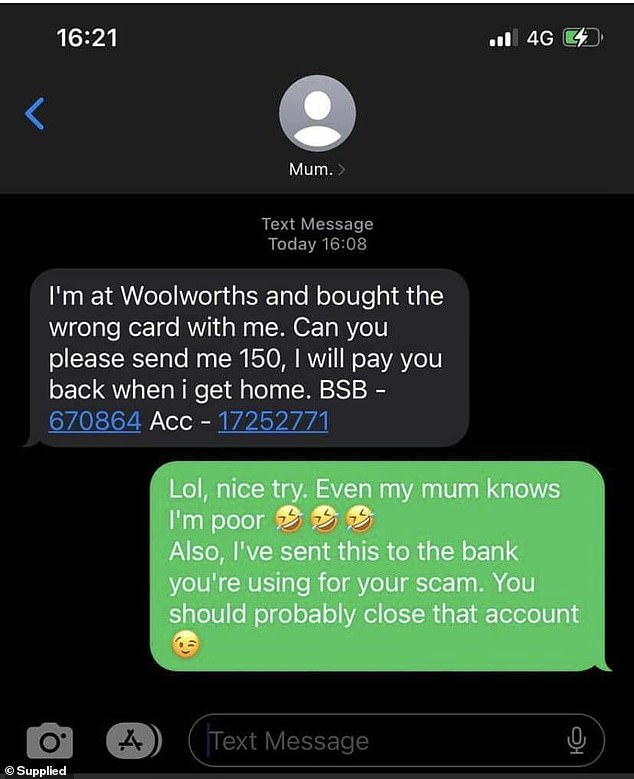Text scammers target jobseekers and children in WhatsApp
>
Scammers have targeted job seekers and children of elderly parents in a new series of text messages aimed at swindling vulnerable Australians out of their hard-earned money.
The Australian Competition and Consumer Commission has warned that job seekers should beware of a new wave of fraudulent messages circulating across social media, including popular chat site WhatsApp, claiming to offer unusually high pay rates for minimal work.
One of the messages purports to be a website provider running an upsell service and invites recipients to be partners in the business, so they “can earn between A$200-500 AO” for just one hour of work a day
Another claims that a position at his so-called company can be “done without impacting your current job, earning up to $300-$500 a day.”
Delia Rickard, vice president of the ACCC, says that any offer that seems too good to be true is usually not what it appears to be.

Australian job seekers have been warned about a new wave of scam messages circulating across social media claiming to offer unusually high pay rates for minimal work (scam message posted on popular chat app WhatsApp shown)
‘What [recipients] what they have to do is make hotel reservations or buy products in the store, and they tell them they will pay them back and get a commission,” he said. 7News.
“If they look at their app, they’ll see the money they make goes up and up.”
Such scams have resulted in victims having their personal information stolen and facing the dreaded prospect of having their bank accounts drained.
The ACCC said 3,194 employment scams were reported in 2022 and Australians lost a whopping $8.7 million.
Australians aged 25-44 reported the highest losses and this is believed to be due to the frequency of job changes in this demographic.
Ms Rickard said these figures were potentially just the ‘tip of the iceberg’ because most people do not report their losses.
“So we are probably losing tens of millions to these scams,” he said.
Job scam red flags include being told to act quickly to secure the job, being offered a job without an interview, handing over personal bank account details, or being asked to wire money to a third party.
Another wave of brazen texts has been directed at the children of elderly parents, pretending to be in financial difficulty.
One recipient posted a suspicious message he had received on social media offering a “heads up for anyone with elderly parents.”
“Just got this text from ‘mom’ asking me to send money to a bank account,” the post read.
‘I’ll admit, my first instinct was to just send the money and not question it at all. Put it out there for others who can do the same.’
The message appears to have been sent by a contact named ‘Mum’, who claims to be shopping at a Woolworths store.

Text message scams have resulted in victims having their personal information stolen and facing having their bank accounts drained of their hard-earned money (file image pictured)
The scammer claims to have brought the wrong bank card to the store and therefore requires a money transfer from the recipient. The message includes a BSB and an account number.
In August last year, Australians took to social media to issue a warning about fraudulent text messages claiming to be from a parent requesting urgent financial assistance.
Family phishing texts shared online show messages appearing in a conversation thread as being from ‘Mom’ or ‘Dad’, making them more convincing than other scam messages that are attached to a random number.

Image of a fraudulent text message shared on social media of a contact claiming to be the recipient’s ‘mom’ and asking for money
The dubious texts involved scammers introducing themselves as ‘mom’ or ‘dad’ before asking for money to buy groceries or gas.
This series of scams followed the ubiquitous ‘Hello Mum’ scam which robbed Australians of more than $2.6 million last year.
The ‘Hello Mum’ scam came into the spotlight after police revealed that scammers were taking advantage of vulnerable older Australians by posing as their children.
Once the scammers struck up a text conversation with the vulnerable victim, they typically requested an urgent payment because they couldn’t access their own money.
Ms Rickard has urged anyone who thinks they are caught up in a recruitment scam to contact Scamwatch and could seek help from the cyber support charity IDCARE.
